'The public is at risk' | Father of fallen pharmacist pushes for new rules for Indiana pharmacies
Research shows pharmacy staff report higher levels of distress and burnout, putting patients at risk. An Indiana father said new laws are needed for change.
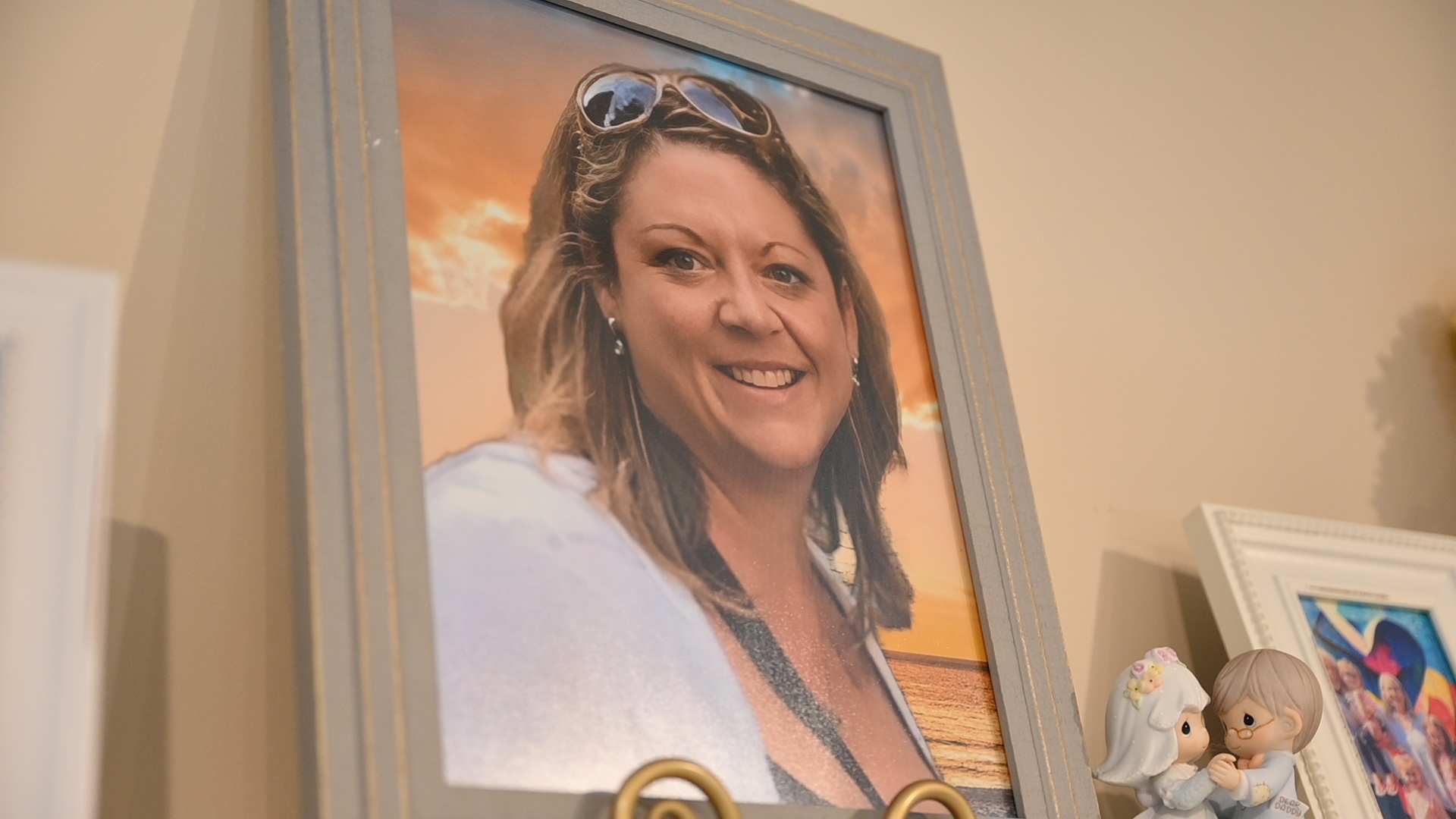
“How ya do’n?”
When Ashleigh Anderson got that text from her longtime boyfriend, she responded by texting she had “jaw pain… intermittent chest pain and cold sweats.”
Ending her message with an alarming statement, “I think I’m having a heart attack.”
Despite those concerns, the 41-year-old texted that she planned to wait for a replacement pharmacist to arrive.
Ashleigh was the only pharmacist at her pharmacy in Seymour, meaning if she closed it would inconvenience patients and reduce pay for coworkers. Ashleigh’s father believes she was worried closing could come back to haunt her at work.
“She felt that if she went to the hospital, closed the pharmacy, and it was a panic attack or something other than a heart attack, that she would be judged and treated adversely,” said her father Larry Anderson.

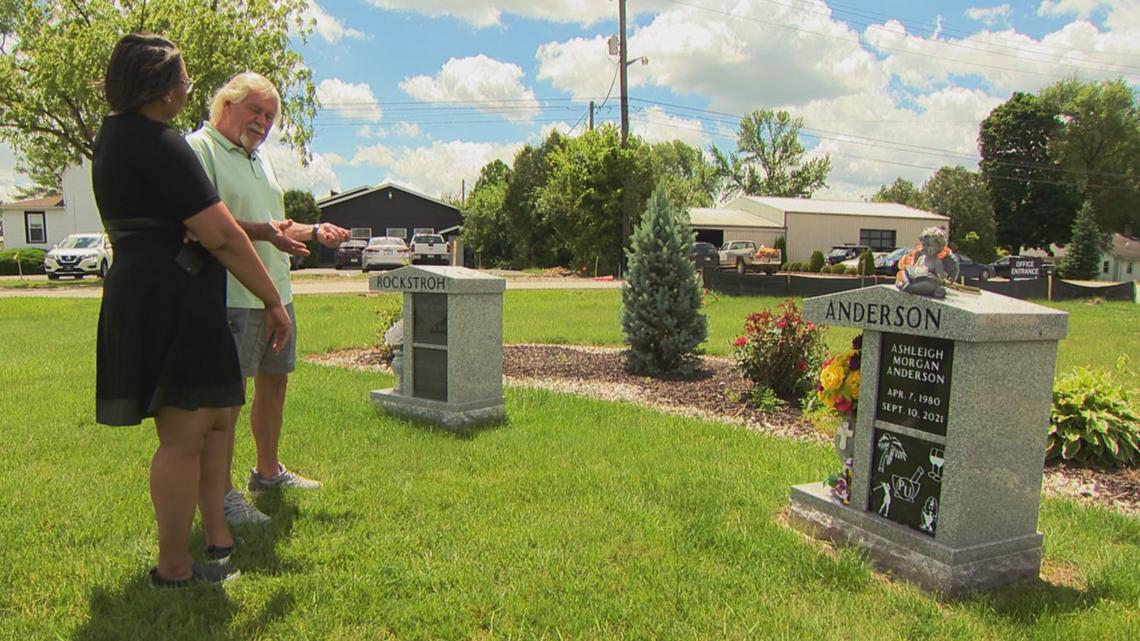
So, she waited, even though her text messages indicated the district office told her to close.
Ashleigh texted her boyfriend Joe Bowman she would go to the Schneck Medical Center — less than a five-minute drive away.
She never made it.
Ashleigh collapsed before her replacement arrived. Her cause of death — a heart attack.
In a statement, CVS told 13 Investigates it "remains deeply saddened" by Ashleigh’s death, but noted she was "explicitly told ... to close the pharmacy and seek medical attention."

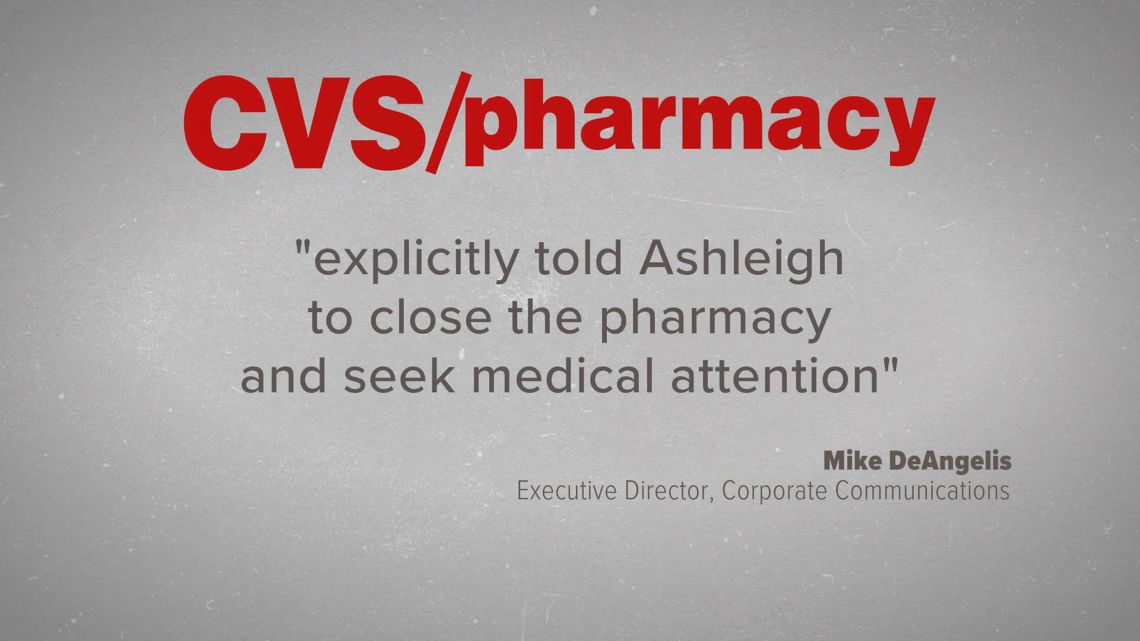
Rallying cry
However, pharmacists across the nation saw Ashleigh’s death in September 2021 as a symptom of a bigger issue. They believe her story shows how understaffed pharmacies and overwhelming working conditions put staff at risk. Research shows those conditions are likely also creating dangers for patients.
When news of Ashleigh’s death spread, pharmacist advocate Bled Tanoe created the hashtag #SheWaited. It became part of a rallying cry for change. Pharmacists across the nation started to use it along with #PizzaIsNotWorking as part of a push for better working conditions.

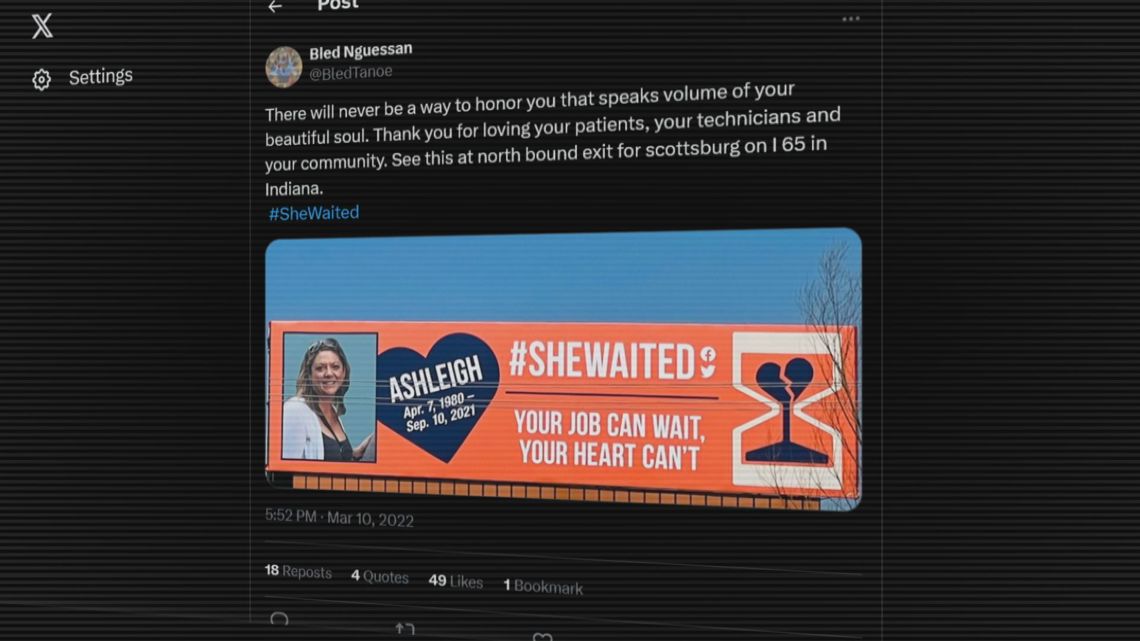
This year, Anderson joined the movement more publicly. He’s currently talking with lawmakers and the Indiana Pharmacy Association to consider adapting new laws and rules passed in other states to Indiana. He also went before the Indiana Board of Pharmacy and supports giving the board more power to better hold pharmacies accountable.
"CVS did not kill my daughter,” Anderson said. “The changes that occurred at CVS and throughout the pharmacy industry, that killed my daughter."

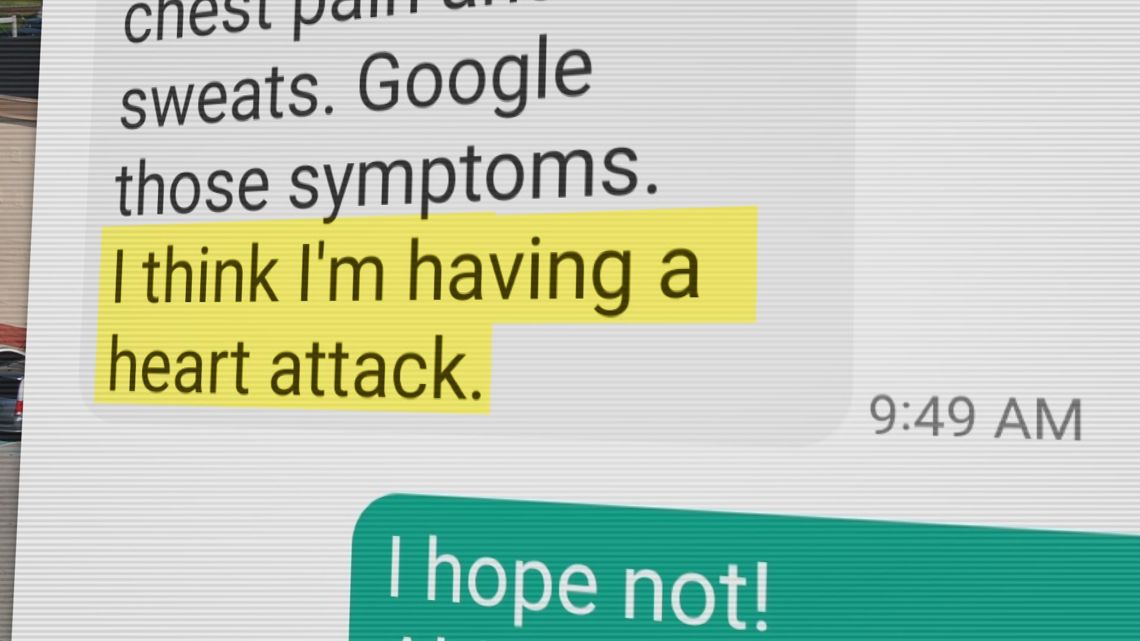
Pharmacies in crisis
Pharmacy professionals reported burnout more than any other group in last year's Mayo Clinic survey of medical workers. Nearly 30 percent of those working at chain pharmacies said they were in distress, which could lead to more mistakes that impact patients. Distressed workers also showed the highest chances of experiencing burnout, severe fatigue, below average job performance, turnover, suicidal ideation and poor quality of life.
Several pharmacy workers tell 13 Investigates that over the last several years, pharmacies, in particular community pharmacies, have started increasing the number of duties for pharmacists while at the same time reducing staff. So, many pharmacy workers have more work with fewer people to do it.

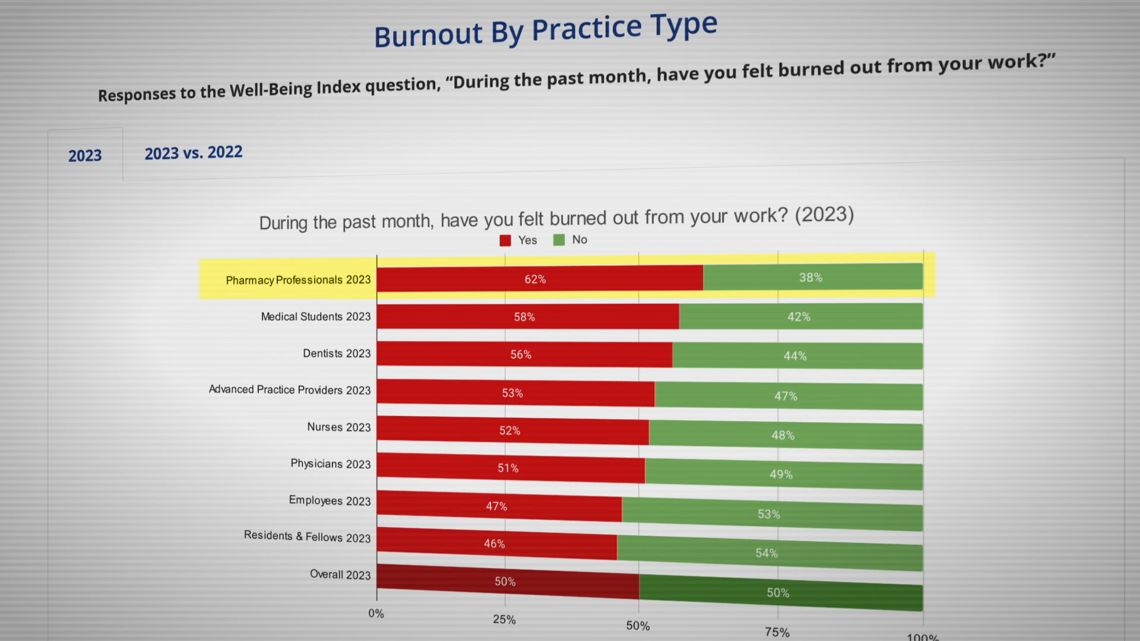
Veronica Vernon of Butler University said when an error occurs, an entire system should be reviewed, not just the actions of an individual worker.
"That whole pharmacy system needs to be fixed,” she said.
Vernon is the Vice Chair of Pharmacy Practice and an assistant professor at the university. She is also a former president of the Indiana Pharmacy Association.
"We're noticing there's significant staffing issues in community pharmacy that need to be addressed,” she said.
Vernon said that includes pharmacists and support staff.
A 2022 national study commissioned by the Pharmacy Workforce Center, Inc. showed more than 70 percent of respondents thought staffing levels and almost 90 percent thought workload metrics reduce patient safety.
A different study estimated 7,000 - 9,000 deaths in the U.S. each year due to medication errors across the health care system. The study, published in 2023 by StatPearls, also found that overworked pharmacy staff make more mistakes than those who are not overworked.
The Casolaro family from Westfield knows the fear and frustration of dealing with a medication error. Four-year-old John Casolaro is fine now, but his family believes he got sick last year when he was three because of a problem with his medicine.
"We overdosed him," Elle Casolaro said.

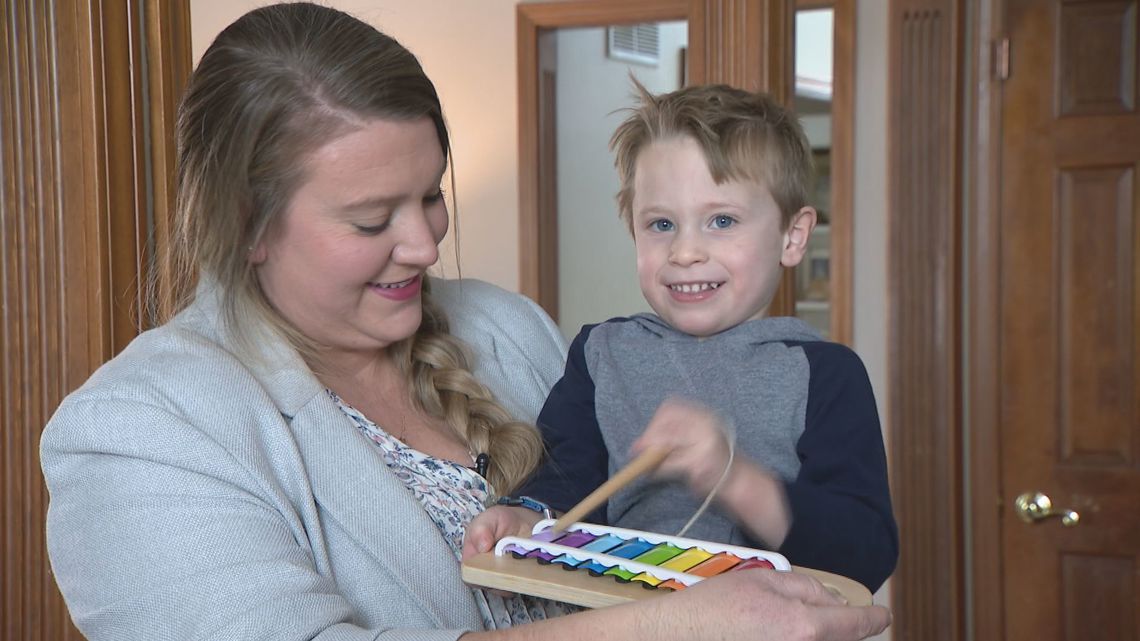
His parents say they discovered his medication was too concentrated. The family reported the error to the Attorney General’s office and spoke out to warn other parents.
They don’t blame the individual pharmacist or pharmacy workers but instead the parents believe it was likely an error caused by the chain’s business practices.
“We routinely heard from them that they're understaffed," Casolaro said.
13 Investigates spoke with four Indiana pharmacy workers who talked with us anonymously to detail their experiences. 13News verified their identities and checked their license history. However, the four asked that 13 Investigates not use their names because they are worried speaking publicly would negatively impact their current and future employment.
One pharmacist said they left retail pharmacy because it was "becoming unbearable and unsafe."

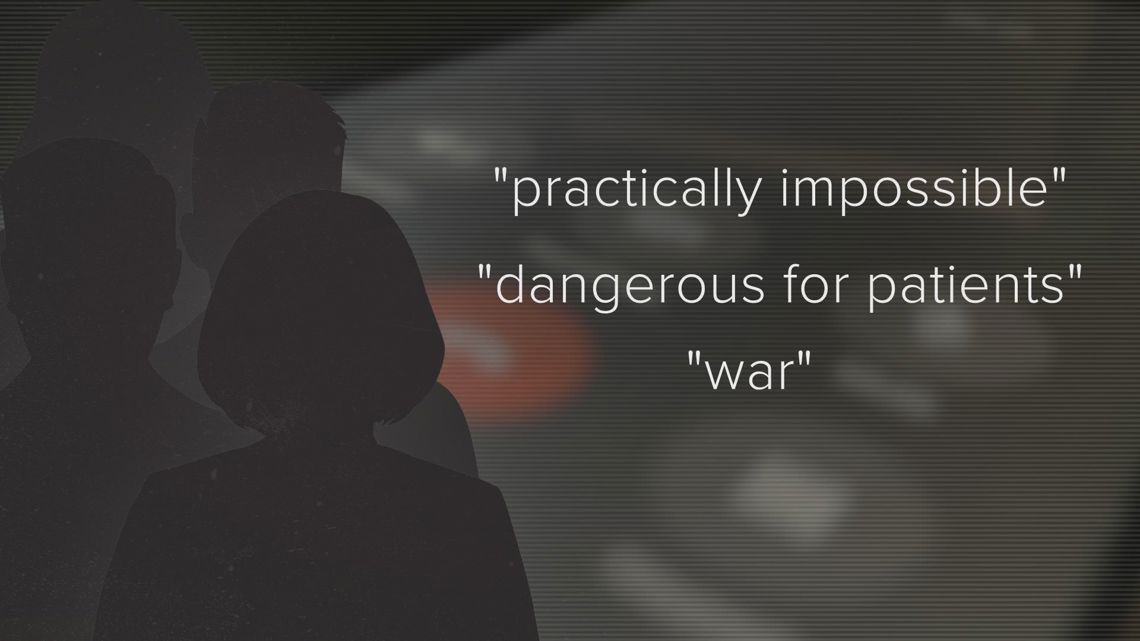
Others said work requirements were "practically impossible” and "dangerous for patients." One pharmacist said going to work was "war."
That pharmacist went on to say, “Until the law force(s) proper staffing [pharmacy companies are] not going to do it.”
Vernon and the pharmacist advocate 13 Investigates spoke with say there is not currently a shortage in the number of people able to do these jobs, but instead a shortage of people willing to take them given current working conditions. They also warn that there is a decrease in young people applying to pharmacy schools and fear there may be a shortage or pharmacists and pharmacy workers in the future.
Fight for change
Anderson said he was surprised by the testimonies he heard from pharmacy workers following his daughter’s death. Those stories are why he’s now pushing lawmakers and leaders in Indiana to look at what other states have done to tackle concerns facing the pharmacy industry.
He supports the new rules Ohio's Board of Pharmacy implemented this spring. The new rules set new minimum standards for staffing, require rest breaks, require tracking of pharmacists’ staffing concerns and requests, and provide whistle-blower protections.
Protections Anderson wishes his daughter had.

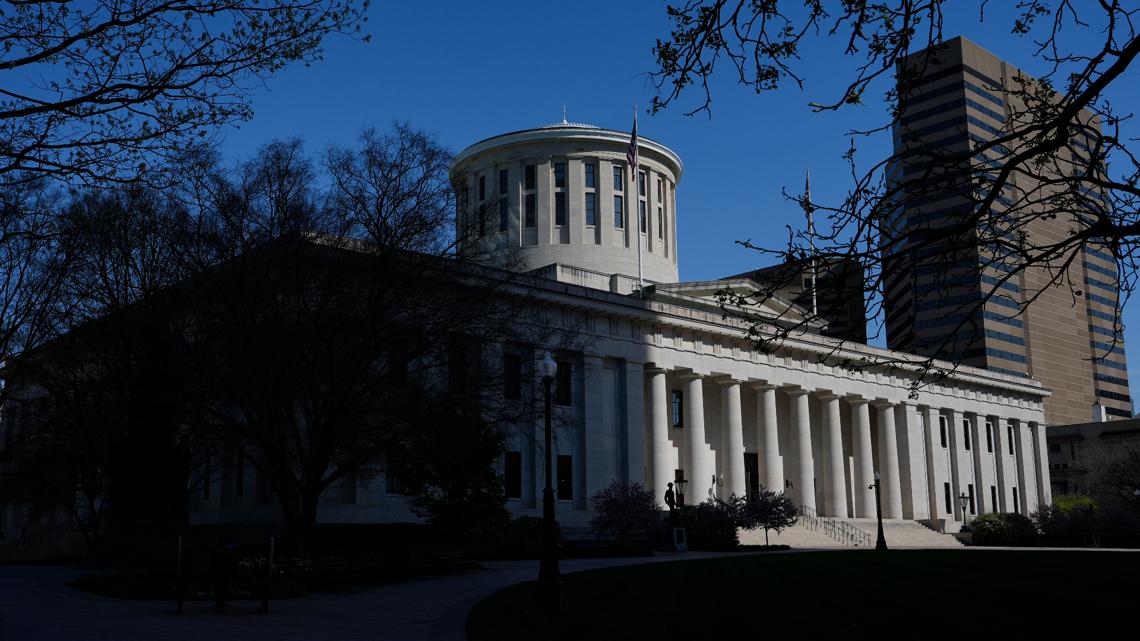
California commissioned a Medication Error Reduction and Workforce Ad Hoc Committee to look at how working conditions impact patients and found there were likely 5 million medication errors due in part to work conditions. Last year, California lawmakers passed a law that set minimal staffing requirements and now requires pharmacies to report medication errors. The state is the first in the nation to require that type of reporting. The hope is that by tracking errors, the state will be able to address the conditions that lead to those errors which supporters believe will protect staff and patients.
“These errors are happening at a tremendous rate,” Anderson said. “Indiana needs a law that requires pharmacies to report their errors."
Anderson also wants Indiana lawmakers to give the Board of Pharmacy more power to hold pharmacies accountable. He thinks one way to do that is by increasing the state’s cap on fines for violations of law. Right now, it’s set at $1,000.
“They’re out of kilter,” Anderson said. “A parking violation is a far more significant charge, even at $20 than, $1,000 violation."
Anderson said the cap on fines was put in place in the 1970s when the pharmacy industry was drastically different. He said it’s time for those rules to be updated.
The pharmacy workers 13 Investigates spoke with said they believe the board needs to better enforce current laws. They believe some of the proposals Anderson is pushing would be helpful if adapted to Indiana.

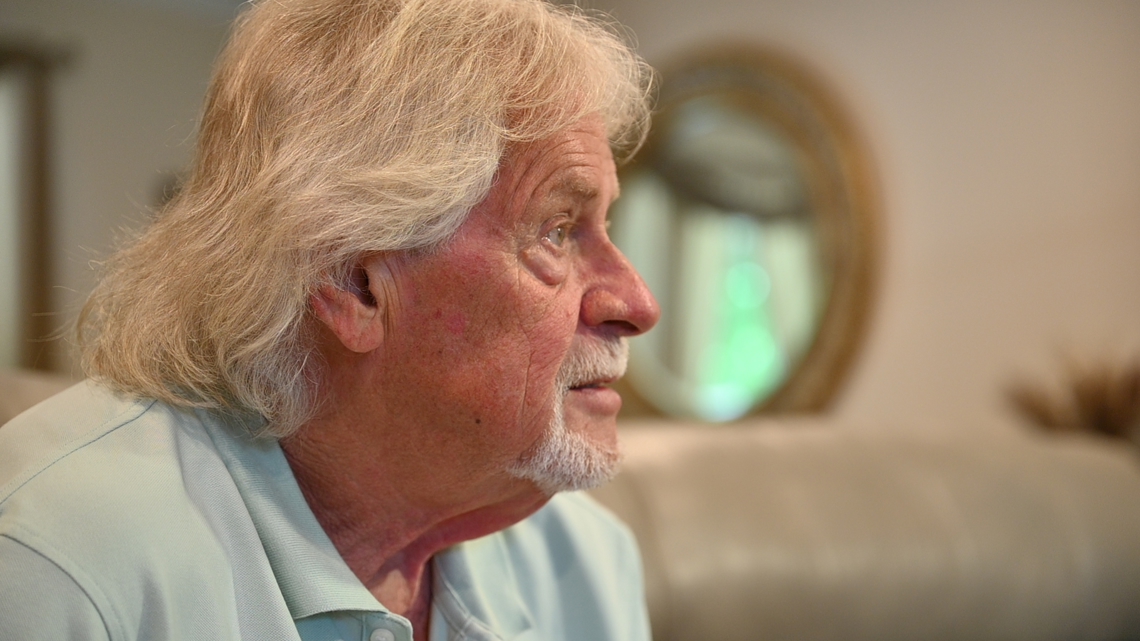
13 Investigates spoke with some of the lawmakers Anderson is in contact with. Both Republicans and Democrats report being open to reviewing the father’s suggestions. We also learned Anderson has been put in contact with GOP leadership, which means he’s talking directly to those with the greatest influence to make change.
Indiana’s Pharmacy Association would not say if it supported any of the proposed changes but tells 13 Investigates it is reviewing them and wants to also consider potential financial implications. The association plans to come out with a position later this year.
Anderson said he wants to see new laws come out of the 2025 legislative session.
He’s determined to keep the lines of communication open with Indiana decision-makers. Ultimately, he hopes his family’s loss and Ashleigh’s story help spur change — the change he thinks will better protect pharmacy workers and the patients she served.
Some change already
13 Investigates spoke with CVS about Anderson’s concerns and two of the topics he is particularly concerned about for people who work in pharmacies.
A spokesperson wrote, “Ashleigh Anderson was an outstanding pharmacist who was committed to her patients, respected by her co-workers, and we remain deeply saddened by her death. We never want, expect, or require employees to work if they are ill or experiencing a health emergency.” The spokesperson noted, “...our district office explicitly told Ashleigh to close the pharmacy and seek medical attention when she reported not feeling well.”
CVS said it is making changes as a result of input from its pharmacy workers across the country.
On the topic of metrics, CVS told 13News, “...we’ve substantially reduced overall business metrics in the front store and pharmacy. We continue to maintain a focus on measures that are critical to helping us ensure high quality patient care and safety.” CVS says the metrics it uses are like those widely used in the pharmacy field.

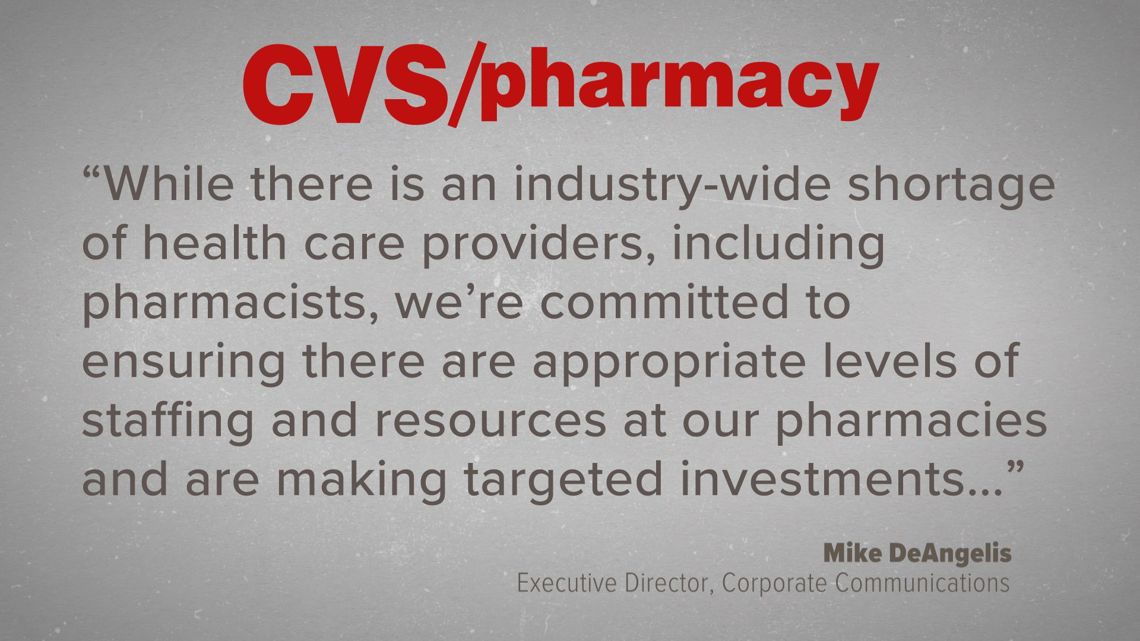
CVS also said that in February 2022, it began a program where most pharmacies close from 1:30 p.m. – 2 p.m. in order to give pharmacy workers “a predictable and consistent daily pause while minimizing disruptions to our patients.” For workers at 24-hour locations, the pharmacy does not close for a meal break at night when there are fewer customers. CVS wrote, “Pharmacists are still encouraged to take their mandated breaks when working these later, less busy shifts. We will often schedule additional colleagues to work in stores (in states where allowed) during these shifts to ensure there is coverage for breaks.”
The company said, “While there is an industry-wide shortage of health care providers, including pharmacists, we’re committed to ensuring there are appropriate levels of staffing and resources at our pharmacies and are making targeted investments, including enabling teams to schedule additional support as needed, enhancing pharmacist and technician recruitment and hiring, and strengthening pharmacy technician training.“

